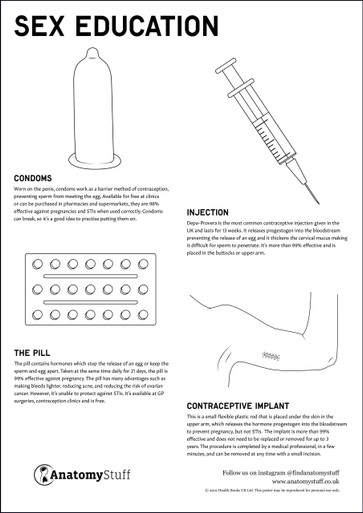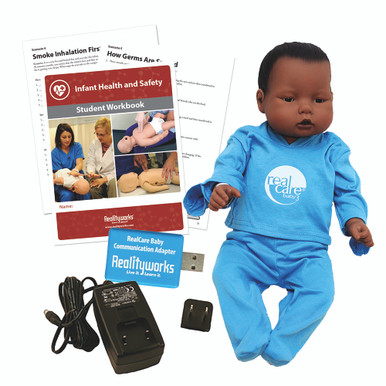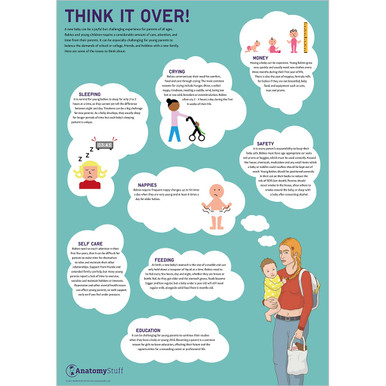Tips for Teaching Sex Education in Our Schools
Here in the UK, life as a teacher is not always straightforward. Teaching can be difficult at the best of times, and some topics and subjects are considered much harder than others. Without a doubt, RSE (Relationships and Sex Education) is one of them.
Back in September 2020, the Department for Education introduced mandatory Relationships Education for primary school students and RSE for secondary school students. Despite this, concerning research has discovered that the country’s educational systems are failing young students. Despite RSE being deemed mandatory, it was discovered that 49% of young students received no RSE from their schools or places of learning during Covid lockdowns.
Teaching RSE is important because it helps students build their confidence and self-esteem, mature, and understand the practicalities of sexual education. It will help them establish healthy relationships when the time is right and help them understand their own bodies and any changes they may be going through.
As a teacher, it’s essential that you understand how to safely and effectively teach RSE. Here are some useful tips and suggestions.
Understand that it’s okay not to know everything
One of the toughest aspects of teaching RSE is the fact that teachers put so much pressure on themselves to know everything. This is simply not realistic.
You do not need to be a sex education expert to teach RSE. Expecting to know every answer is simply not feasible. Sometimes your students ask questions that you simply don’t know the answers to, and that is okay. It’s perfectly acceptable to tell your students that you’re unsure.
As long as you’ve mastered the basics and understand the curriculum, that’s the most important thing.
Do your research
Teaching RSE for the first time will be a nervy experience, but as long as you’re well prepared and have done your research well in advance, you’ll be absolutely fine.
Study the latest information, find out the laws, look into which services are available, and study the answers to the subjects that you will be teaching.
There are plenty of useful links online that you use to help, as well as books, video tutorials, and much more besides.
As society has changed, this needs to be reflected in the lessons that you teach. LGBTQ relationships, for example, are much more prominent. As society is much more open and understanding, you will need to teach your students about the society we live in today and the different kinds of relationships they may engage in.
Free PDF Downloads
View AllDon’t focus solely on sexual health
When teaching RSE, you need to remember that it isn’t just sexual health and sexual education that you are teaching. Now, of course, you’ll be teaching them about their anatomy, biology, and physiology, but you also need to remember to look at relationships, boundaries, and the intimacy side of things.
You will need to teach your students about bonding with partners, setting boundaries, what is right and wrong when it comes to relationships, sexual or otherwise, and much more besides.
Understand that there will be uncomfortable topics
One of the lesser appealing side of things when it comes to teaching RSE in schools is tackling subjects which are uncomfortable.
You will need to teach about what is right and wrong when it comes to relationships and sexual intercourse, how to set boundaries, laws, and health issues such as sexually transmitted diseases and infections.
Talking about sexually transmitted diseases, unplanned pregnancies, sexual assault, and other painful topics may be uncomfortable, but they most certainly need addressing, and it is your job as the teacher to address them head-on.
Try to keep your lessons as inclusive as possible
According to research, one of the main complaints that young people have when it comes to sexual education at school is that lessons and more heterosexually orientated.
We’re living in a much more inclusive world nowadays, in a world where homosexuality is no longer a taboo subject. With more and more young people discovering their sexuality at a young age and becoming gay or bisexual, it’s essential to reflect this in your lessons.
Try to give bisexual and homosexual education every bit as much time and attention as heterosexual education.
Ensure that you use gender-neutral language
Rather than using pronouns such as he/him and she/her, instead, try to use gender-neutral language when teaching RSE.
Practice using terms such as ‘they’ and ‘them’ as these are gender-neutral terms and, going back to our last point, are also a great deal more inclusive.
By using pronouns such as she/her or he/him, you are subconsciously telling your students who society expects them to be sexually attracted to. This can put a lot of pressure on the shoulders of students who may already be struggling with their sexuality. As a teacher, this is the last thing you want.
By using pronouns, you’re helping to show your students that it’s okay to feel the way they feel and be attracted to who they’re attracted to. It shows that there is no “normal” and no right or wrong. Whom they choose as a partner, romantically, sexually, or otherwise, is their choice, and it is a perfectly valid and normal choice.
Make your lessons fun
RSE can be an intimidating subject, not only for teachers but for students as well.
The last thing you want is to make your lesson tense or awkward, which is why it’s so important to make it fun and enjoyable whenever possible. This will not only make teaching the lesson easier but also help relax your students and create a more productive and relaxed environment.
Try to have a few laughs and jokes with your students, and try not to be too serious. Of course, there will be times when a more serious and professional tone will be needed but whenever possible, try to create a friendlier, more relaxed environment.
Creating a more relaxed and laidback environment takes away any awkwardness and helps put your students at ease as well. The more relaxed they are, the more likely they will be to cooperate, ask questions, and open up.
Use the correct language and terminology
Unless you are specifically teaching your students about slang terms, always be sure to use the correct language and terminology in your lessons.
When discussing sexual activity and reproductive organs, for example, make sure you refer to them correctly. Of course, you may be tempted to use slang terms to try to get your students on side and to help create that relaxed environment we spoke about before, but when teaching something as serious as RSE, you need to ensure you use the correct language and terminology.
There you have it, some of the top tips to help you teach safe and effective sex education. in a nutshell, if the students are old enough to learn about relationships and sex, then they’ll old enough for you to speak openly, honestly and respectfully with them. Gain their respect and trust and make it light rather than heavy and uncomfortable. Try a conversational approach, involve them and ask their opinions. Remember, they need to know this stuff, so how you deliver the information is just as important as what you’re delivering.
Related products
View All














